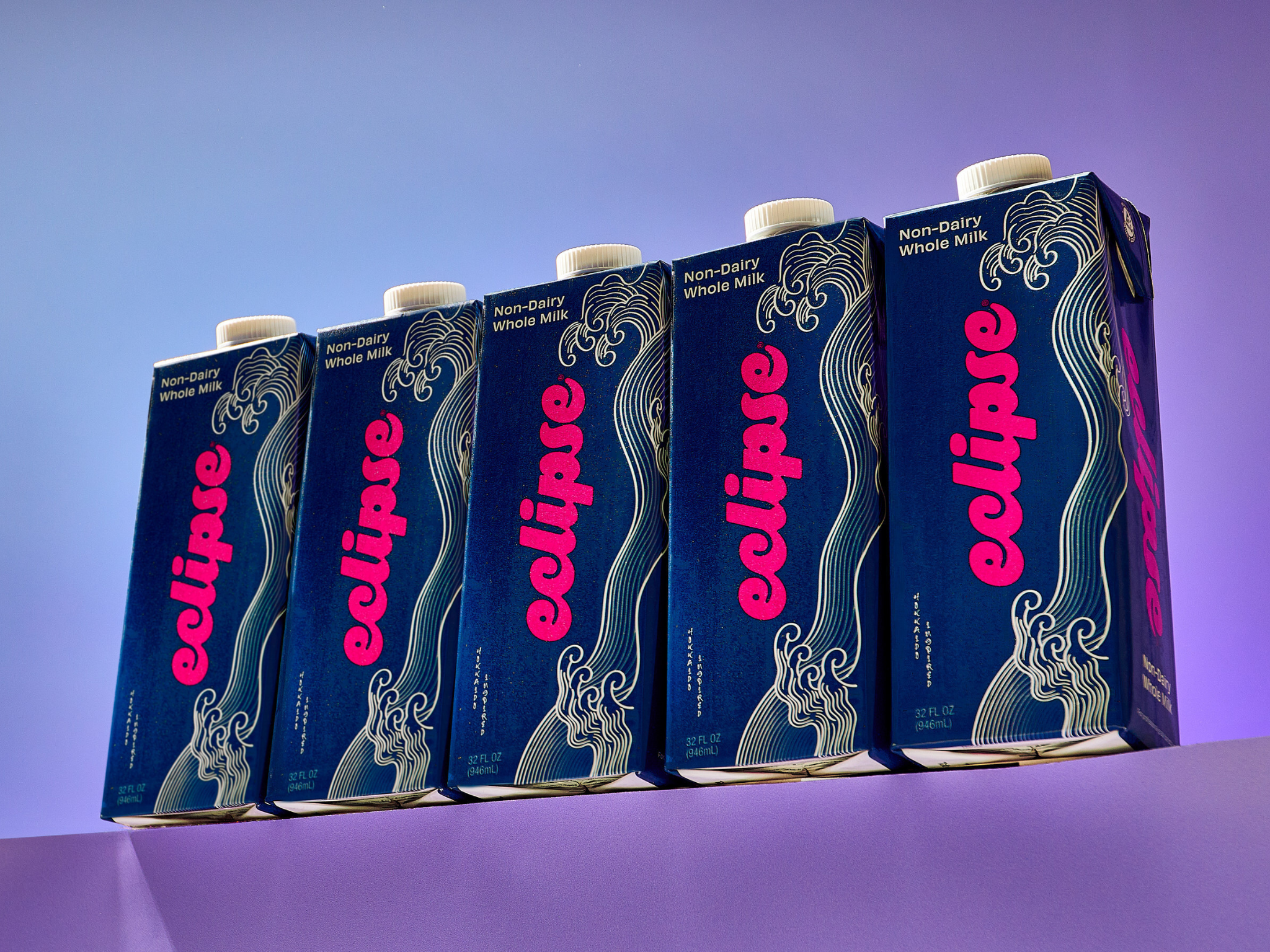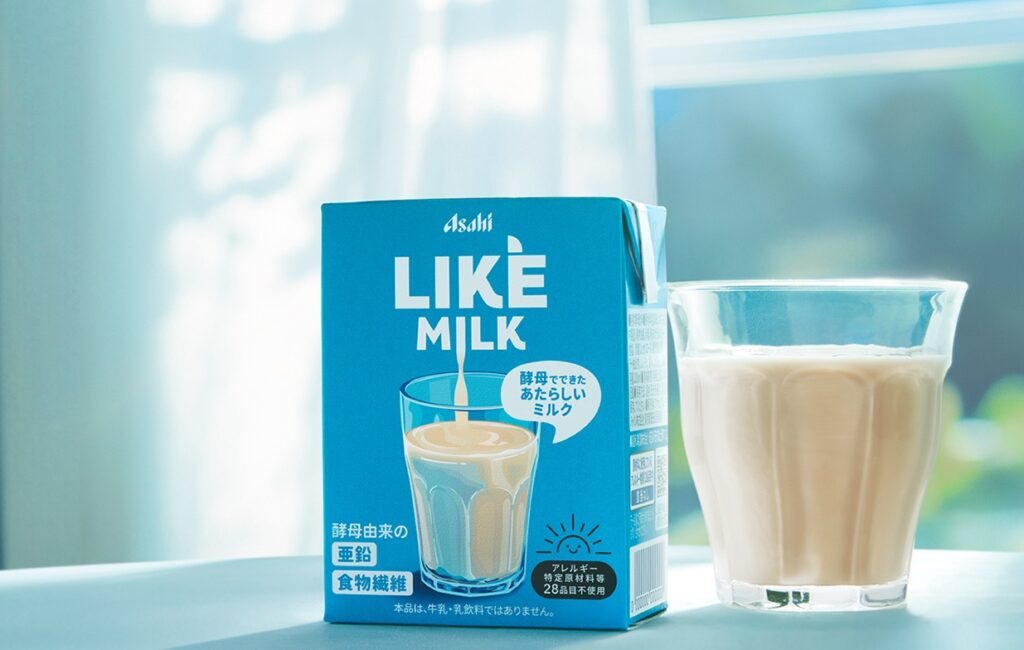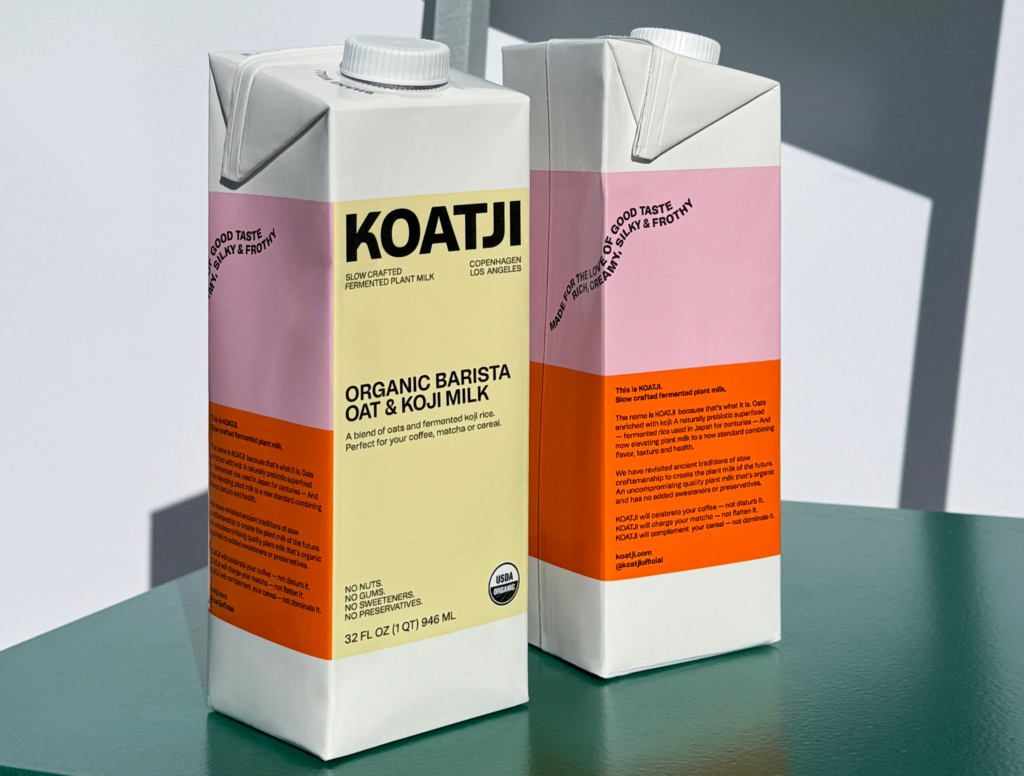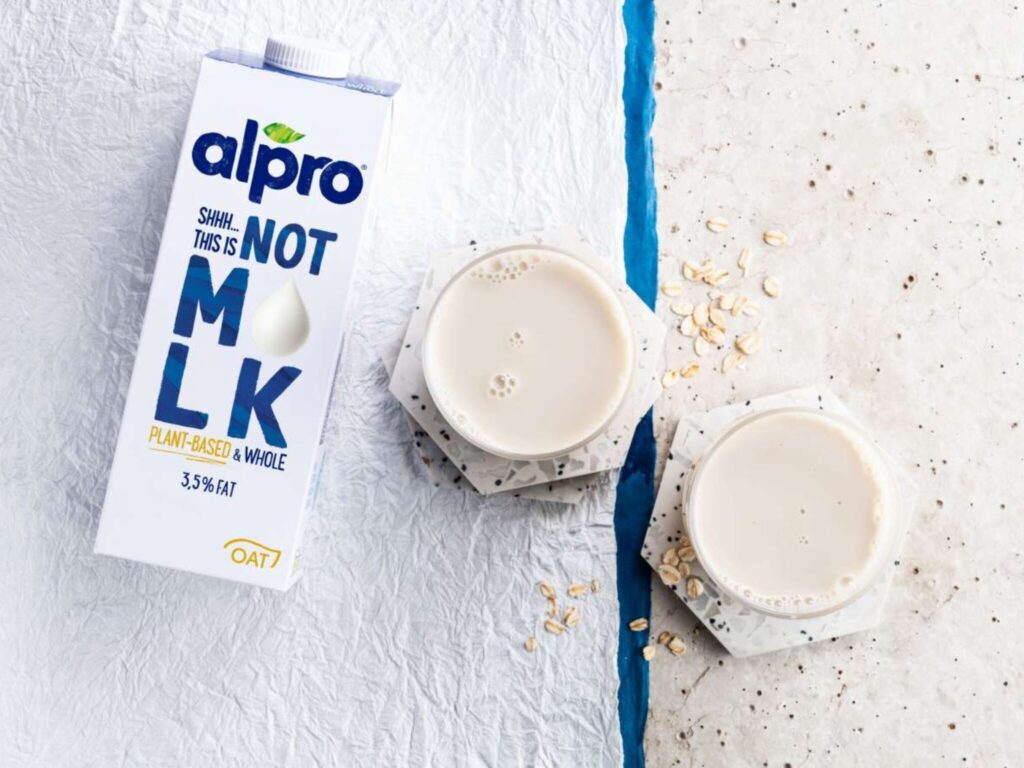
A wave of ‘not milks’ is on the rise, attempting to replicate dairy instead of merely replacing it, but previous efforts have seen mixed success.
From Japan to the US, plant-based milk brands are hoping to tackle the resurgence of dairy with ultra-realistic alternatives that match cow’s milk on flavour and texture, branding them with monikers like ‘Not Milk’ or ‘Like Milk’.
It’s a concept that was first popularised by Chile’s NotCo, whose NotMilk – made from a blend of ingredients identified by artificial intelligence (think peas, pineapples, and cabbage) – took the US by storm for its likeness to conventional dairy.
The idea was that traditional plant milks didn’t necessarily deliver on flavour. Soy was too beany, oat too cereal-like, and coconut, well, too coconutty. Consumers were left wanting more. In 2023, research suggested that despite 44% of US households buying non-dairy milk, a third of Americans still hadn’t found an alternative that met all their needs.
A recent global survey found that among the people who don’t purchase plant-based milk, nearly six in 10 are open to making the shift if their needs are met. The problem? Unsatisfactory taste or texture, which remains the primary barrier and leaves 57% of consumers resistant to drinking dairy-free alternatives.
This is why some plant-based milk brands are now focusing on replicating the flavour of cow’s milk, as opposed to just offering a non-dairy alternative that may not taste similar. NotCo did it first, and Alpro followed soon after – but will this approach be successful?

Replicate, don’t imitate
Last week, California’s Eclipse Foods debuted a Non-Dairy Whole Milk for coffee shops, bakeries, smoothie bars and other foodservice outlets.
“Unlike most plant-based milks that aim to imitate traditional dairy milk, Eclipse’s latest innovation truly replicates milk,” the company explained in a press release. Its team isolated proteins from peas and chickpeas to replicate the molecular structure of milk.
The new product focuses on “flavour, stability, sweetness, and whiteness”, which Eclipse Foods argued are the main categories where most non-dairy milks fall short. Its innovation is said to foam in both hot and cold temperatures, and hold that foam for as long as cow’s milk.
The brand says it’s inspired by Hokkaido, the dairy-famous region in Japan. So it’s fitting that in the East Asian country, another non-dairy company is hoping to reproduce the flavours of milk.

Asahi Group, the holding company of the eponymous beer giant, this month began test sales of Like Milk, an animal-free milk made from yeast. The firm leverages fermentation to achieve this result, feeding yeast with sugar, powdering the extracted biomass, and mixing it with plant-based ingredients.
It contains an equivalent amount of protein to dairy and soy milk, and lots more fibre. In addition, it’s free from 28 common allergens, and positioned as a product that “can be used in every aspect of daily life in the same way as milk”.
Asahi’s technology boosts the yeast’s emulsifying properties and removes its unique flavour to leave a mellow-tasting vegan alternative reminiscent of dairy. Like Milk is set to be released nationwide next year.
Fermentation is also the star of Koatji’s Koji Oat Milk, which is crafted by Michelin-starred chefs. While the brand doesn’t specifically market the product as a dairy replica, it suggests that the combination of oat milk with the enzymes used to make miso imparts a depth of flavour to “create the plant milk of the future”.

Do consumers want dairy-like non-dairy milk?
These plant-based milk innovations rival other newcomers that are targeting aspects like nutrition (see Whole Moon and Potina), sustainability (Força Foods and Kern Tec), and premiumisation (Tách and PKN).
It comes amid a resurgence of dairy consumption in some parts of the world. In the UK, while conventional dairy sales increased by 6% in January, plant-based analogues only saw a 1% hike. Across the Atlantic, sales of dairy milk grew by 2% in the US last year, with raw milk intake up by 18% (albeit from a smaller base) – in contrast, the country saw a 6% decline in plant-based milk consumption.
Can meeting the thirst for cow’s milk with ‘exact’ replicas help vegan brands attract more consumers? Companies like Eclipse Foods and Asahi are betting on it, though the category’s history to date shows middling returns.
NotCo’s Not Milk is no longer as widely available in the US, though that could be more to do with the firm’s shift in approach and the handover of its North American operations to Kraft Heinz.
However, some notable examples come from Danone. In the US, the dairy giant discontinued its Silk Nextmilk and So Delicious Wondermilk SKUs, both alternatives said to replicate the molecular composition and taste of cow’s milk. The company didn’t give a reason for the withdrawal, saying at the time it was “prioritising our efforts on innovation across our product portfolio to deliver on evolving consumer preferences, including functional and nutritional needs”.

And in the UK, Danone recently pulled its This Is Not M!lk range under the Alpro brand, as revealed by Green Queen last month. “While ‘This Is Not M!lk’ was designed to create a more familiar dairy milk taste, our UK shopper research showed us that many of our consumers enjoy the taste of oat just as much, if not more so,” Tom Kerr, head of plant-based at Danone UK & Ireland, told Green Queen in a subsequent email.
“As such, we decided to focus on the great taste of our core oat range and discontinued This is Not M!lk in the UK towards the end of 2024,” he added. “We have no plans to bring this back to the UK at the moment… However, it continues to be enjoyed by consumers across several markets in Europe.”
Indeed, for many consumers, non-dairy milk simply tastes better. One global survey found that two in five respondents buy plant-based milk for its taste superiority. It’s why you see so many people who aren’t vegan or lactose-intolerant opting for an oat milk latte – and research shows one in five Americans who purchase vegan alternatives also put cow’s milk in their shopping carts.
So will products like Eclipse Foods’s Non-Dairy Whole Milk and Asahi’s Like Milk help turn the tide for plant-based milk? Or will they go the same way as Danone’s attempts? Only time – and consumers – will tell.
The post Plant-Based Milk Brands Are Going All-In On Replicating Dairy – Will Consumers Sip? appeared first on Green Queen.
This post was originally published on Green Queen.